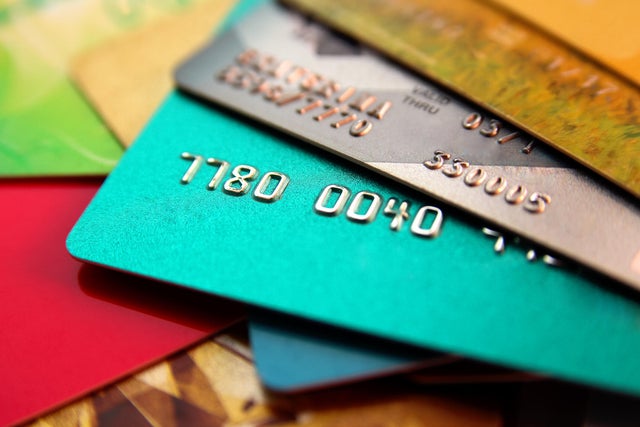Should you pay off a charged-off credit card account?
When money's tight, as it is for many people amid today's mix of rising inflation, growing debt problems and elevated borrowing rates, it's easy for your credit card balances to spiral out of control. And if you fall too far behind, your lender might eventually give up on collecting what's owed and charge off your account. When a credit card company charges off an account, it marks the debt as unlikely to be collected and writes it off as a loss for accounting purposes.
But despite what the term might suggest, a charge-off doesn't mean you no longer owe the money. In fact, charged-off debt can continue to create financial problems for years. This move can damage your credit score and signal to future lenders that you're a risky borrower, and your creditors or debt collectors can still pursue payment, whether that's through aggressive phone calls and letters or through legal action.
So, what's the right move once a credit card has been charged off? Should you try to pay it off and make things right, or leave it alone and focus on rebuilding instead? The answer isn't as simple as you might think.
Find out how you can start tackling your high-rate debt problems today.
Should you pay off a charged-off credit card account?
A charged-off credit card account can severely damage your credit score and make borrowing in the future more difficult. That's the biggest reason to deal with it head-on rather than ignore it. So, in many cases, paying off a charged-off account is the responsible course of action.
But first, it's important to understand what paying a charge-off won't do: It won't immediately boost your credit score or remove the charge-off from your credit report. The negative mark can remain for up to seven years from the date of your first missed payment.
However, a charged-off account showing as "paid" looks better to future lenders than one marked as unpaid, which can help. While that negative charge-off mark remains, future lenders may look more favorably on your borrowing profile because it shows you took responsibility for your debt.
But if the debt has been sold to a debt collector, paying the original creditor typically won't help, as it no longer owns the debt. You'd need to work with the debt collection agency instead. In that case, it's smart to confirm who owns the account and how much you actually owe before sending any payment.
Still, paying off the full balance may not always be your best move. If the debt is several years old, the statute of limitations on debt collection may be approaching, meaning debt collectors could soon lose the right to sue you over the charged-off debt. Making a payment could restart that clock, so it's typically important to consult with a debt expert before making any moves.
Learn more about the debt relief strategies available to you now.
What are the best ways to deal with a charged-off account?
If you're facing a charge-off, you have several ways to tackle it, some of which are more beneficial than others, depending on your situation and goals. Here are some of the better options to consider if you find yourself in this situation:
- Full payment: Paying the entire balance settles the debt completely. To do so, contact the current debt owner, which may be the debt collection agency if the account was sold, to confirm the exact amount owed. Be sure to request written confirmation before sending payment and keep documentation of all transactions.
- DIY debt settlement: You can also negotiate directly with the creditor or collection agency. Many creditors are willing to accept less than the full balance when a debt has been charged off, and in many cases, you may be able to negotiate a payment that's 30% to 50% lower than the original debt. Just be sure to get any settlement agreement in writing before making payment, and make sure it specifies that the amount fully satisfies the debt.
- Debt forgiveness through debt relief: Professional debt relief companies can negotiate with creditors on your behalf, which can be helpful if you're managing multiple accounts or find direct negotiation difficult. It can also result in a better outcome compared to taking the DIY approach. These services typically charge fees based on the debt amount or savings achieved, though, so make sure you understand all of the associated costs before enrolling.
- Payment plan: If you can't pay immediately, some creditors or debt collectors will offer installment plans for the full balance. While this generally doesn't reduce what you owe, it makes repayment manageable and demonstrates good faith.
The bottom line
While a charged-off account can haunt your credit for years, the right approach can help you turn the page and start rebuilding your financial future. Paying off a charged-off credit card can be a smart move, but only if you do it strategically. It can help show lenders that you've taken responsibility for your debt, but it won't erase the charge-off from your credit report.
Or, if you can settle the charge-off for less or work with a debt relief company to handle the negotiations for you, you might save money and minimize further credit harm. Before taking action, though, be sure to weigh your options to determine which one really makes the most sense for your situation.
